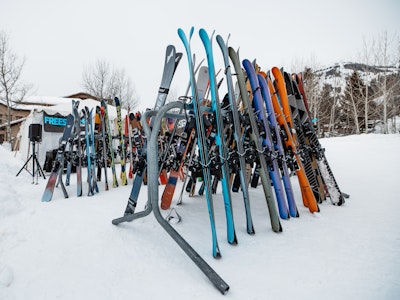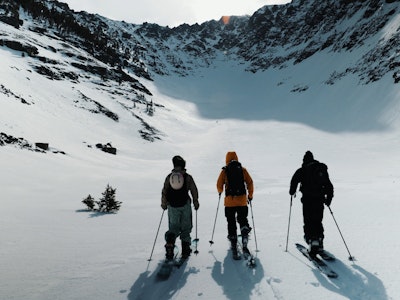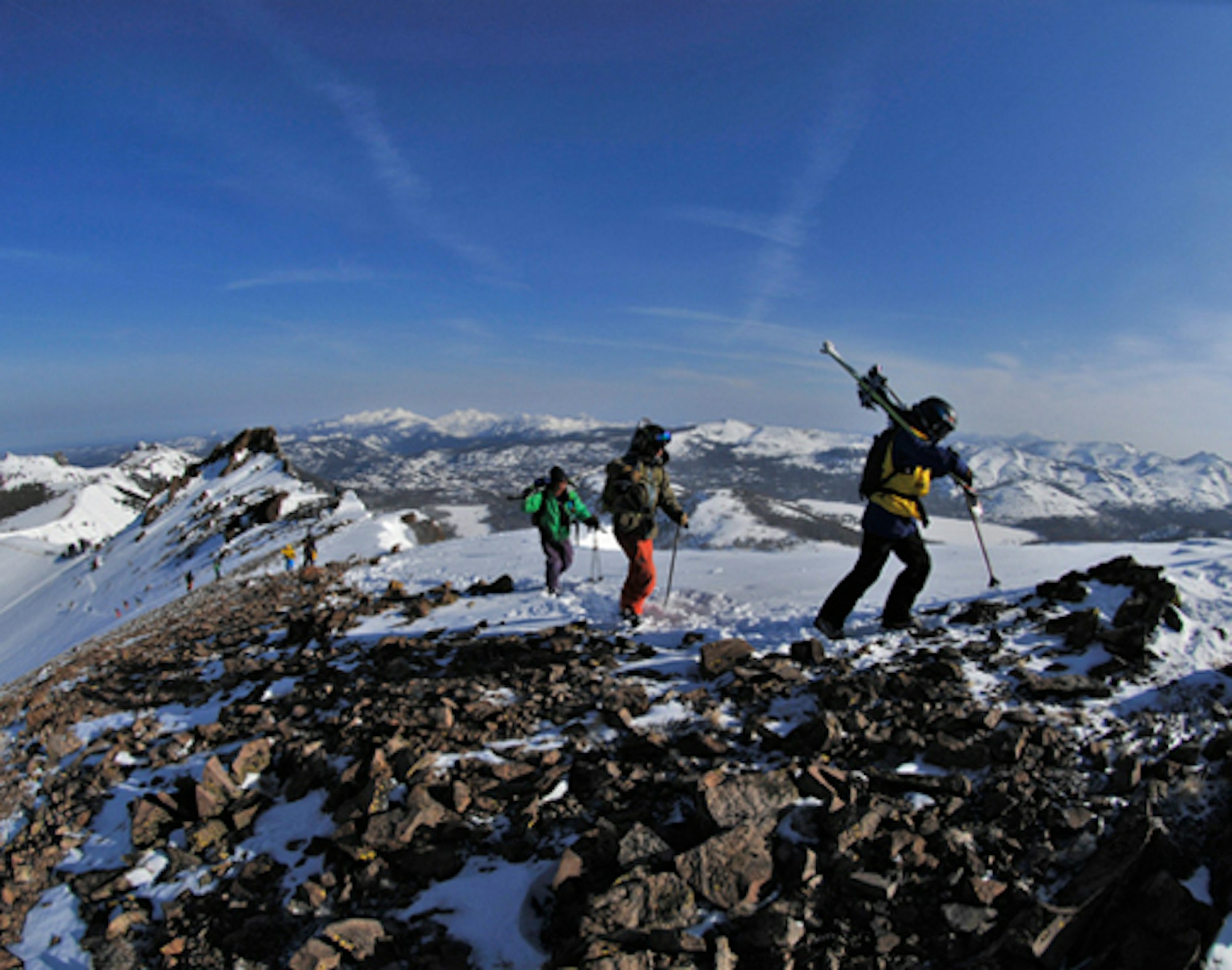Six years ago, I entered my first big-mountain contest—the Snowbird Freeskiing World Championships. I battled my way through qualifiers and day one, and sitting around 20th place going into the finals, feeling under-judged and under-appreciated, I made big plans to make up ground: a big left three over a group of trees, a sizable 40-foot backflip off the next cliff, a right three off a 20 footer and a hairy double at the bottom. A rowdy run, even by today’s standards. I was going to win, for sure. Luckily for me, I over-rotated my first three and tomahawked my way into last place before I got really hurt.
Fast-forward a couple years to the Verbier Xtreme in Switzerland. I’d won a couple of contests in the US, but still had a chip on my shoulder and something to prove. An inspection-only venue, I lined up a 20-by-40 foot double, with a melted back and blind take off onto an extremely narrow middle pad. Essentially I was taking off blind, and hoping I was lined up to land on snow, not rocks. I hit the snow, but back-slapped and went sailing off the second air out of control, narrowly missing rocks in the landing but still shattering my thumb into pieces. I spent my prize winnings from the season (and more) on getting my thumb put back together. I still refer to that run as the stupidest thing I’ve done on skis.
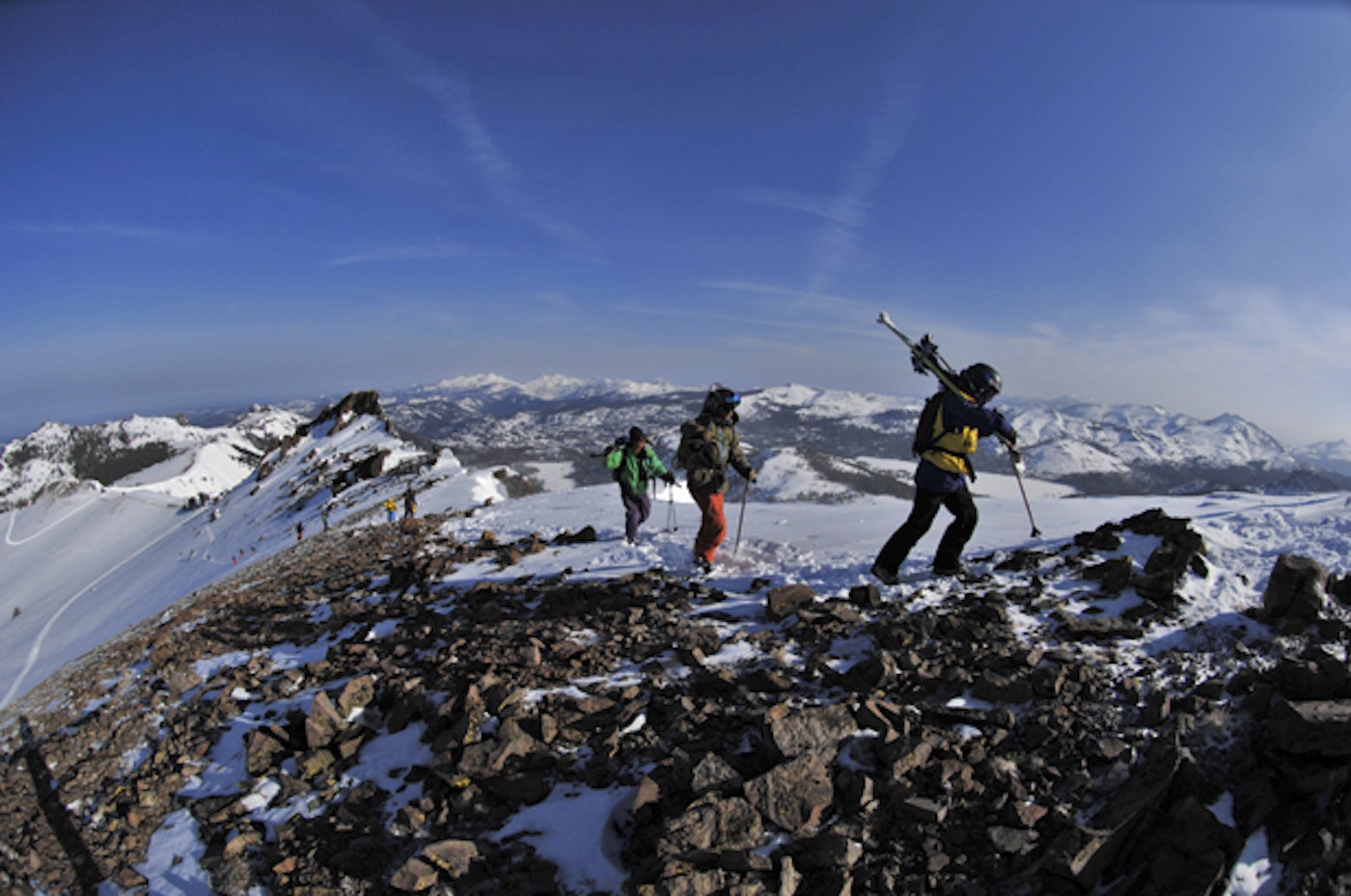
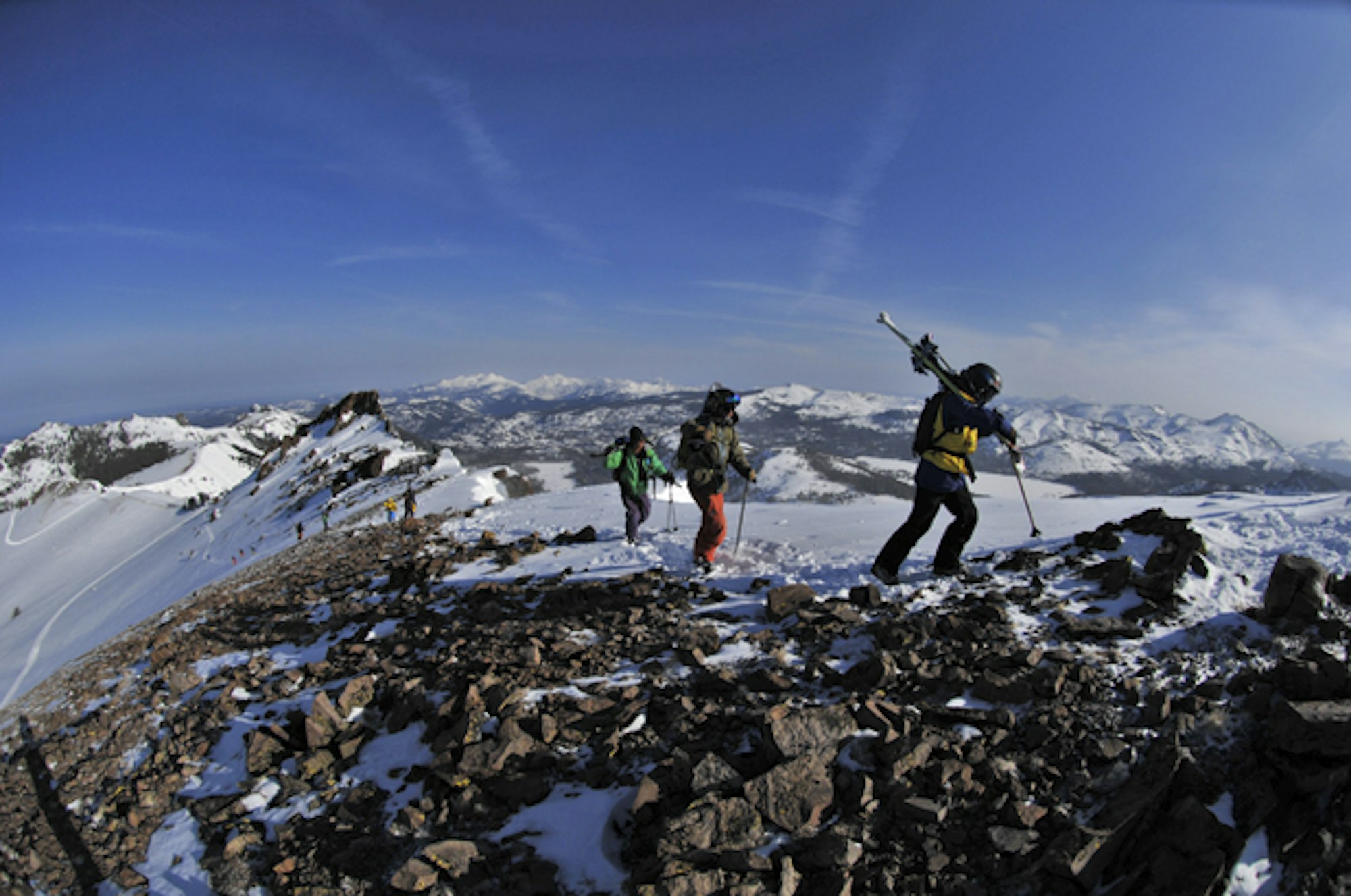
Athletes en route to the top of the Cirque, 2012 FWT Championships at Kirkwood. Photo Henrik Lampert.
I tell these stories to illustrate the poor judgment I used during my first several years of competing, even as my experience grew. It’s easy to fall into the trap of thinking that these contests are a ticket to street cred, more sponsors and ultimately the silver screen—which I presume is the goal for many competitors. And yes, these contests can get you the nod to shred untracked faces on a sponsor’s dime, but this comes only through a lot of calculation, time and luck. For first timers, this is the stuff I wish I had known for my first few years of competing:
It’s you versus the mountain, not you versus the guy next to you.
Inspecting, it’s easy to have your line dictated by a fellow competitor, let’s call him Joey NoBrains, who’s going to send the BFF (biggest freaking feature) onto hard-pack. Don’t let him dictate what you’re going to ski. Look for the line that highlights your skiing style the best—not Joey’s “skiing” or what you think the judges want to see. Put your individual mark on the mountain.
Nobody has ever won on the first run, but plenty of people have lost.
Most entry-level contests will be multiple runs, so resist the temptation to go all-out right out of the gate. Keep in mind, one-third to one-half of the competitors are going to blow up, so maybe save that double-cork for the last run.
When it comes to judging, sometime you’ll get burned, sometimes you’ll get hooked up.
Big-mountain skiing is arguably the most subjective sport in the world. As such, be prepared to get under-judged and over-judged, but more likely the former (or at least it will seem like it) until you get some experience. It’s hard not to take it personally, but try not to mean-mug the judges if you feel burned. Talk to them, see what’s up, and remember, they’re there to help.
Think long term.
Everyone wants more sponsors and recognition sooner, and it’s easy to see your first contest as a ticket to just that. You’ll want to go for the win, but judges reward consistent, solid skiing, not the guy that’s responsible for the biggest scare of the day (they’ll remember you for that, too). Ski consistently and the results will come, as will the sponsors and recognition.
Ski within your ability.
With all the energy and hype around these contests, it’s tempting to hang it out there, and try that line or trick that you’ve never done before. Trust me, be realistic. If you’ve only landed a 40-footer into powder, is today really going to be the day you stomp it onto hard-pack, after five other competitors have bit it? Confident, fluid skiing is rewarded just as much or more as heavier skiing that’s hesitant and loose.
Most importantly, remember that competition isn’t the end-all determinant of a skier’s big-mountain prowess. Athletes like Sage Cattabriga-Alosa, Dana Flahr and JT Holmes never competed particularly well early in their careers, and they seem to be doing okay. Yes, these contests give you unarguable results and street cred to present to sponsors, but more importantly they’re a means to learn, meet like-minded athletes and become part of a family of skiers with an unbridled enthusiasm for the sport. Which, after all, should be motivation enough.

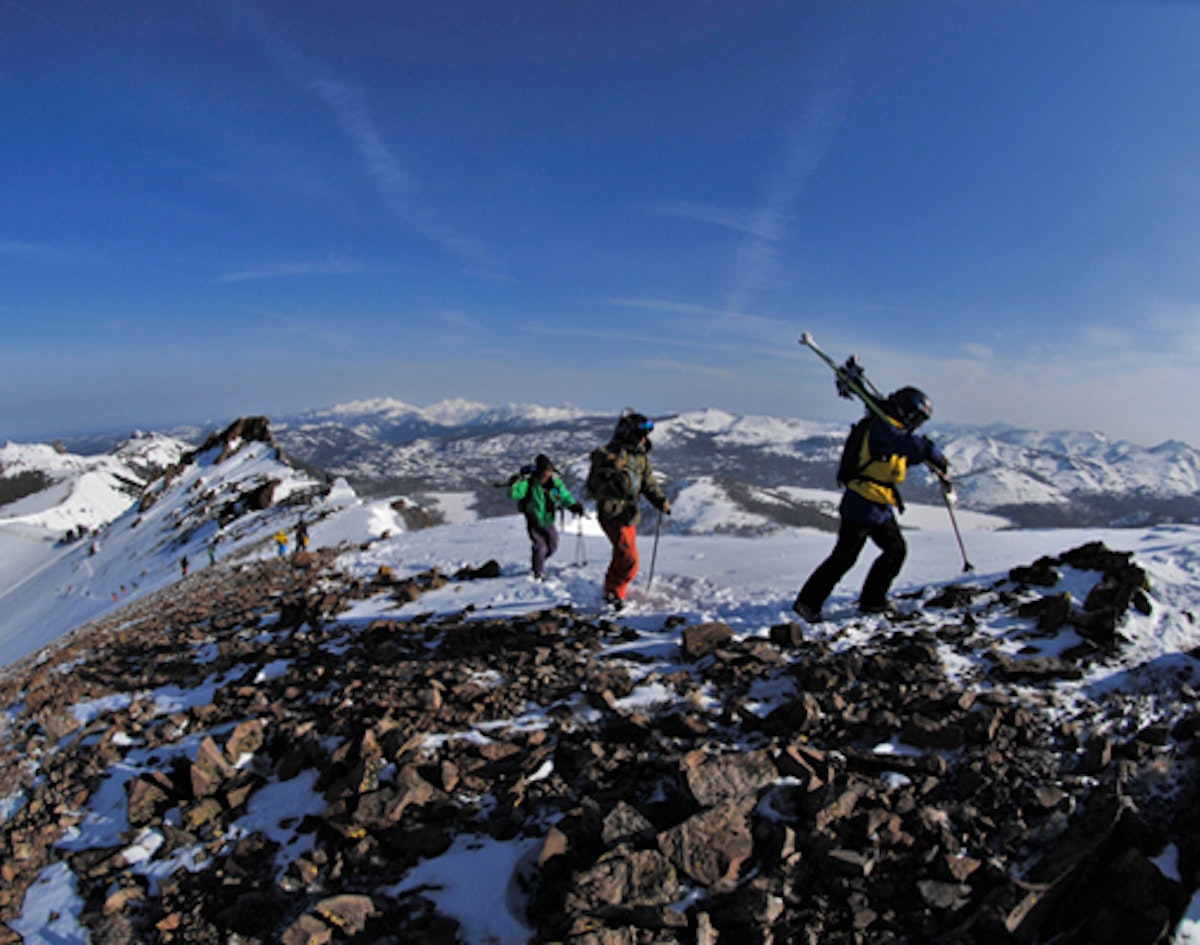
![[GIVEAWAY] Win a Head-to-Toe Ski Setup from IFSA](https://www.datocms-assets.com/163516/1765920344-ifsa.jpg?w=200&h=200&fit=crop)
![[GIVEAWAY] Win a Legendary Ski Trip with Icelantic's Road to the Rocks](https://www.datocms-assets.com/163516/1765233064-r2r26_freeskier_leaderboard1.jpg?w=200&h=200&fit=crop)
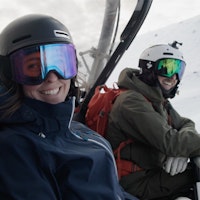
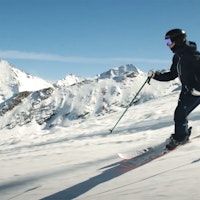
![[GIVEAWAY] Win a Legendary Ski Trip with Icelantic's Road to the Rocks](https://www.datocms-assets.com/163516/1765233064-r2r26_freeskier_leaderboard1.jpg?auto=format&w=400&h=300&fit=crop&crop=faces,entropy)
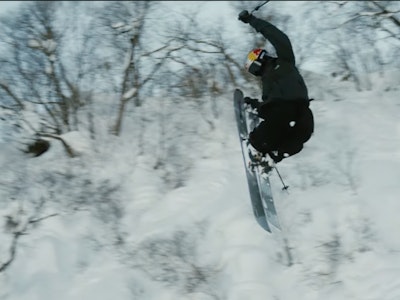

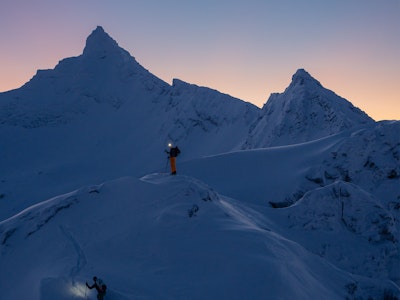
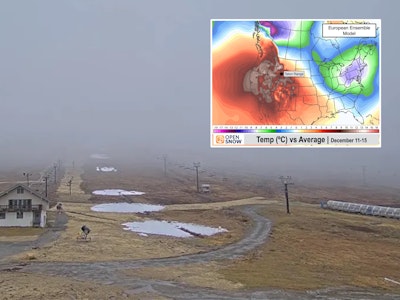
![[GIVEAWAY] Win a Head-to-Toe Ski Setup from IFSA](https://www.datocms-assets.com/163516/1765920344-ifsa.jpg?auto=format&w=400&h=300&fit=crop&crop=faces,entropy)
